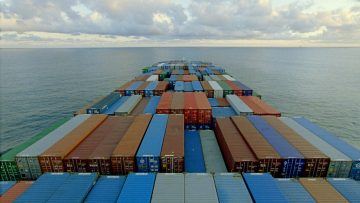 An interview with Laleh Khalili in Phenomenal World:
An interview with Laleh Khalili in Phenomenal World:
Katy Fox-Hodess: Your earlier work focuses on state violence in the Middle East. How did you come to be interested in logistics?
Laleh Khalili: While I was doing the interviews for my book on counterinsurgency, I spoke to several US military officers. One of them was quite sympathetic to my project and very critical of US foreign policy at that time. They said to me, in a joking way, “You academics are interested in the bleeding edge of war, but what you should look at is the money.” It turns out that the money often goes into organizing logistics. Talking with this officer, I learned that payments for fuel for military vehicles, were transferred to Kuwait. The entirety of the Kuwaiti economy had sprouted up through transporting fuel for the US military. I filed this information at the back of my mind.
Some years later, my friend David Hansen-Miller, who worked as a researcher for the International Transport Workers’ Federation, suggested that I research the conditions of dockworkers and sailors in the Arabian Peninsula. There wasn’t much work on the subject, and I knew that many countries in the Arabian peninsula don’t allow unionization. So I began to think about this as well.
More here.
